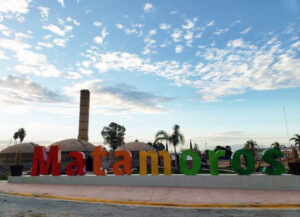Proponents of the war on drugs have three more deaths to add to their drug-war ledger. A few days ago, two Americans, Shaeed Woodard and Zindell Brown, were killed by members of a drug cartel while visiting Matamoros, Mexico. According to CNN.com, “Investigators believe the Americans were targeted by a Mexican cartel that likely mistook them for Haitian drug smugglers.” A Mexican bystander was also killed in the crossfire.

Licensed under Creative Commons.
Yes, the direct cause of their killing was the drug cartel. But the fact is that it is the drug war itself that is the indirect cause of their killing. With no drug war, there would be no drug cartels. No drug cartels would mean that Woodard and Brown and that Mexican bystander would still be alive today.
Matamoros is located on the Mexico-U.S. border, across from Brownsville, Texas. I myself grew up on a border town, Laredo, which is located about 200 miles north of Brownsville. When I was growing up in the 1950s, tourists flooded into Laredo, in order to cross the international bridge to get a taste of “old Mexico.”
People went to the market in downtown Nuevo Laredo to negotiate the purchase of all sorts of souvenirs. They went to the Cadillac Bar to get delicious nachos and beer. They went to dinner at El Rio Motel, which was on the south side of Nuevo Laredo, far from the international bridge. No one had any fear of being shot or kidnapped by drug cartels because there were no drug cartels. That’s because at that time, there was no drug war. No drug war equals no drug cartels.
I was in high school in the mid-1960s. The drug war was just starting, but initially it was pretty much limited to busting people for small quantities of marijuana. Drug cartels had not yet materialized. We oftentimes would take our dates into Nuevo Laredo (sometimes without the consent of parents), where we would enjoy dinner, drinks, and a floor show. The thought of being kidnapped or killed by some drug cartel never entered our minds. That’s because there were no drug cartels.
Before the drug war, American tourists traveled by car throughout Mexico. My parents had driven to Acapulco for their honeymoon. Again, there was no concern about drug cartels because there were no drug cartels. That’s because there was no drug war.
Once the drug war got ramped up in the late 1960s and 1970s and beyond, the drug cartels materialized. That’s because drug prohibition caused the black-market prices of drugs to soar. The exorbitant black-market profits attracted the unsavory types who use violence to capture market share.
The rise of the drug cartels caused government officials in both Mexico and the U.S. to declare war on them. Mexico even brought its military into the fray. Thus began the ever-increasing spiral of violence that has brought so much death and destruction to both countries, but especially to Mexico. I wonder how many Americans realize that the drug war has killed more than 100,000 people in Mexico. Not drugs. The drug war has done that.
Naturally, Laredo lost its attractiveness as a tourist hub. Moreover, Laredo teenagers stopped going on dates in Nuevo Laredo. There was too much danger of being kidnapped or killed by the drug cartels.
Not surprisingly, the reaction of officials on both sides of the border to the killings of Woodard and Brown is: We’ve got to find those killers and bring them to justice. It’s the same mindset that has fueled the war on drugs since the beginning. But even if they succeed in doing so, nothing will change. After all, just look at the long line of drug lords they have killed, busted, or incarcerated since the 1970s. The drug lords are quickly replaced by others, and the deadly game just keeps going on and on.
There is only one way to end this perpetual cycle of violence and restore peace and harmony to the borderlands and to the U.S. and Mexico: End drug prohibition by legalizing all drugs. The day that that happens, the drug cartels will disappear, automatically. That’s because the unsavory types cannot compete in a legal market.
The drug lords are not dumb. They know that this would happen. Not surprisingly, they fiercely oppose drug legalization so that they can remain in business, making huge amounts of money in the process.
But the drug-war enforcers, some of whom are on the take from the drug cartels, are also not dumb. They know that ending the drug war would put them out of business too. Not surprisingly, they too fiercely oppose drug legalization, notwithstanding all the death and destruction that come with prohibition.



